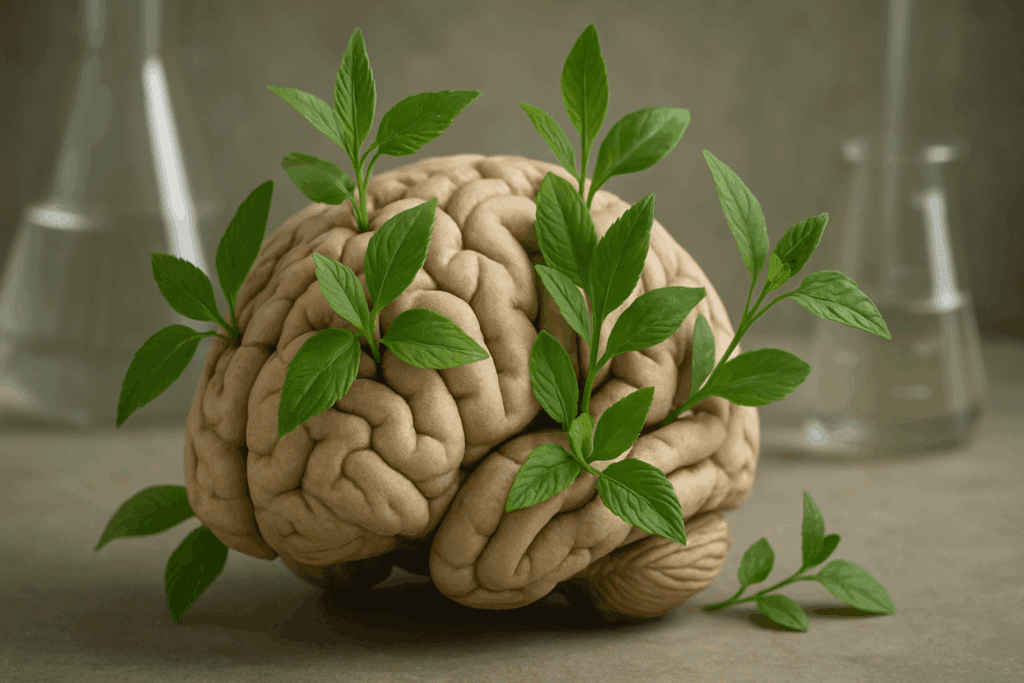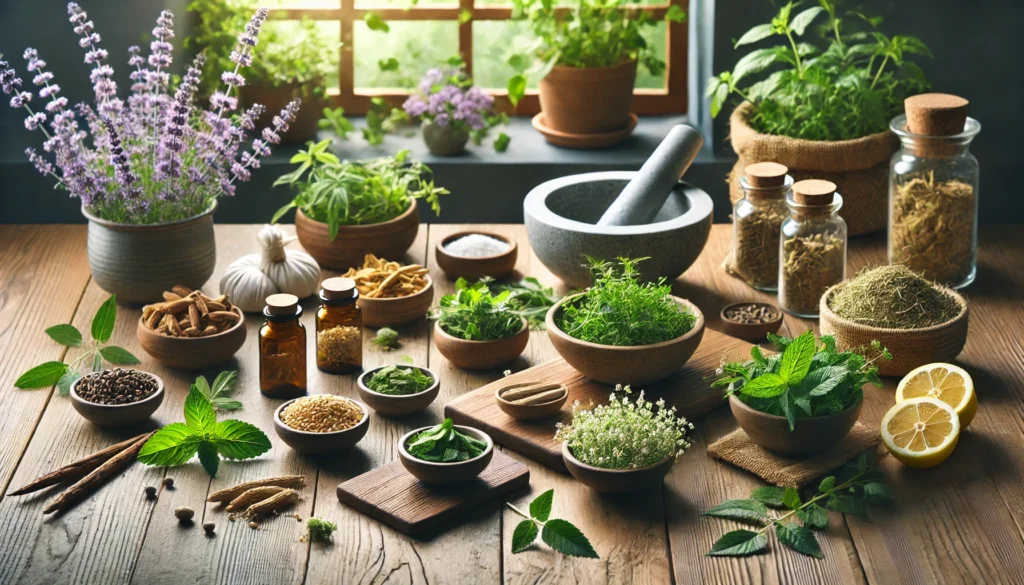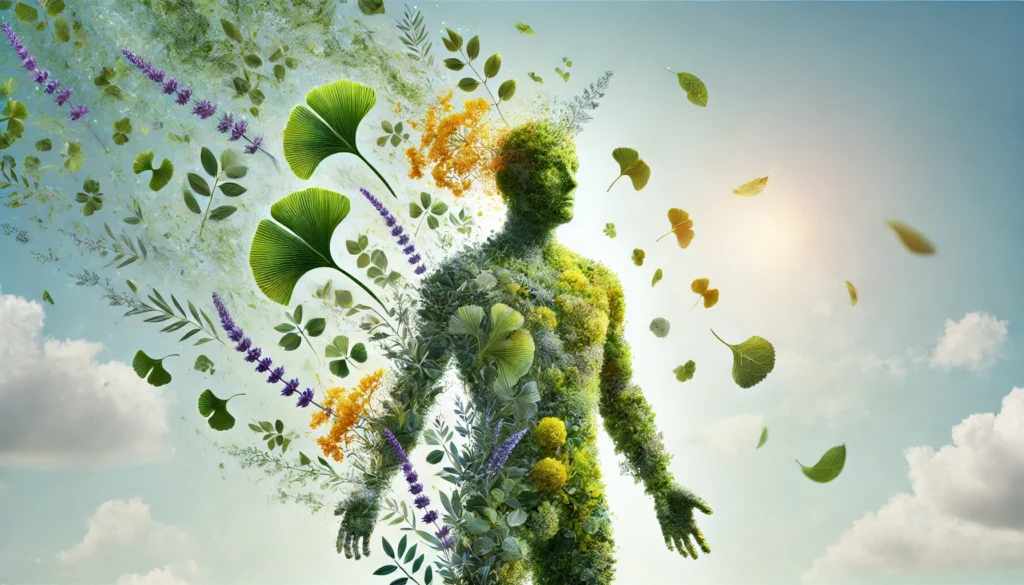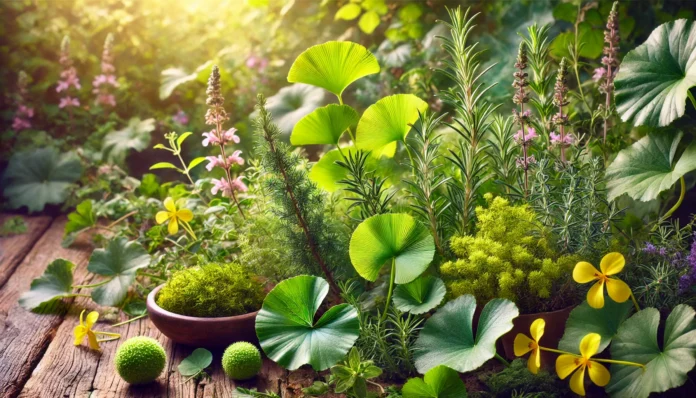
Understanding ADHD and the Need for Alternative Support
Attention-Deficit/Hyperactivity Disorder (ADHD) is one of the most commonly diagnosed neurodevelopmental conditions in both children and adults. Characterized by persistent patterns of inattention, impulsivity, and hyperactivity, ADHD can significantly disrupt academic, occupational, and social functioning. Traditionally, stimulant medications such as methylphenidate and amphetamines have formed the cornerstone of ADHD treatment. While these pharmaceuticals are often effective, they come with a range of side effects and limitations that have prompted many to explore complementary and alternative interventions. Among these, herbal remedies have garnered increasing attention as individuals seek more natural options for cognitive enhancement and behavioral regulation.
You may also like: How to Improve Focus and Concentration: Proven Techniques for Boosting Mental Clarity and Productivity
For those navigating life with ADHD or Attention Deficit Disorder (ADD), the search for effective and sustainable treatment options often leads to the exploration of botanicals and adaptogens. These plant-based compounds have been used for centuries in various traditional medicine systems, and modern science is beginning to uncover the mechanisms by which they may influence neurotransmitter activity, reduce inflammation, and support overall brain function. As we delve into the best herbs for ADHD, it is essential to ground our discussion in the principles of scientific validity, medical accuracy, and ethical reporting. This ensures not only the reliability of the information but also its practical utility for those seeking alternative or adjunctive therapies.

The Science Behind Herbal Remedies and Cognitive Function
Herbal medicine operates on a fundamentally different paradigm than pharmaceutical interventions. Rather than targeting isolated symptoms or biochemical pathways, herbs often work through synergistic interactions that affect multiple bodily systems simultaneously. This holistic approach aligns well with the multifaceted nature of ADHD, which encompasses emotional regulation, executive function, sensory processing, and impulse control.
Scientific interest in the cognitive effects of herbs has surged in recent years, leading to a growing body of evidence that supports their use in enhancing memory, attention, and mood. Neuroimaging studies have begun to show that certain plant-based compounds can increase cerebral blood flow, enhance synaptic plasticity, and modulate key neurotransmitters such as dopamine, norepinephrine, and serotonin—all of which play crucial roles in ADHD pathology. Furthermore, many herbs exhibit adaptogenic properties, meaning they help the body adapt to stress, a factor often exacerbating ADHD symptoms.
It is important to note that while promising, the evidence base for herbal interventions is still developing. Much of the research remains preliminary or based on small sample sizes. Nevertheless, the convergence of traditional knowledge and emerging science presents a compelling case for further exploration. Those seeking herbs for attention deficit disorder or considering herbs for added ADHD support must approach these options with a discerning eye, evaluating the credibility of sources, the rigor of clinical studies, and the qualifications of practitioners.
Bacopa Monnieri: An Ancient Herb for Modern Cognitive Demands
Among the best herbs for ADHD, Bacopa monnieri stands out for its well-documented nootropic properties. Traditionally used in Ayurvedic medicine under the name Brahmi, Bacopa has long been revered for its ability to sharpen intellect, reduce anxiety, and improve concentration. Contemporary research supports many of these claims, with studies indicating that Bacopa supplementation can enhance working memory, processing speed, and attention span.
The primary active constituents in Bacopa, known as bacosides, are believed to modulate neurotransmitter levels and protect neurons from oxidative stress. These mechanisms are particularly relevant for individuals with ADHD, who often experience dysregulation in dopamine and norepinephrine pathways. Clinical trials have shown that Bacopa may improve performance on tasks requiring sustained attention, an area where many individuals with ADHD struggle.
In addition to its cognitive benefits, Bacopa exhibits anxiolytic effects, helping to reduce the heightened stress and emotional reactivity that can accompany attention deficit symptoms. Its adaptogenic qualities make it a valuable ally for those seeking a more balanced and holistic approach to managing their condition. When considering herbs for attention deficit disorder, Bacopa’s long history of use, coupled with its growing scientific validation, positions it as a particularly promising option.

Ginkgo Biloba: Enhancing Circulation and Neural Efficiency
Ginkgo biloba, one of the most extensively studied herbal remedies in the world, is another powerful contender among the best herbs for ADHD. Known primarily for its effects on cognitive function and vascular health, Ginkgo works by increasing blood flow to the brain and exerting antioxidant effects on neural tissues. These actions can enhance alertness, mental clarity, and information processing speed—domains that are often compromised in ADHD.
Clinical studies on Ginkgo’s efficacy for ADHD have yielded mixed but generally positive results. Some research suggests that Ginkgo may be particularly effective when used in combination with other treatments, such as ginseng or pharmaceutical medications. One study found that children with ADHD who received a combination of Ginkgo and Ginseng showed significant improvements in attention, hyperactivity, and impulsivity compared to a placebo group.
Mechanistically, Ginkgo appears to influence neurotransmitter dynamics by modulating the uptake of serotonin, dopamine, and norepinephrine. This multifaceted action mirrors the complex neurochemical imbalances associated with ADHD and suggests that Ginkgo may help restore balance across several regulatory systems. Those exploring herbs for added ADHD support may find Ginkgo to be a valuable component of a comprehensive treatment strategy.

Frequently Asked Questions (FAQ): The Best Herbs for ADHD and Attention Deficit Support
Collusion 1. Can herbal remedies be combined with traditional ADHD medications?
Yes, in many cases, herbal remedies can be used alongside conventional medications for ADHD, but this should always be done under medical supervision. Some herbs for attention deficit disorder, such as Bacopa monnieri and Rhodiola rosea, may complement prescription stimulants by reducing oxidative stress and improving emotional regulation. However, there can be interactions between certain herbs and pharmaceuticals, especially those affecting the central nervous system. For example, Ginkgo biloba may thin the blood, potentially enhancing the effects of anticoagulants. To safely combine the best herbs for ADHD with medication, it’s important to consult an integrative physician or pharmacist familiar with both botanical and conventional therapies.
2. How long does it typically take to see results from using herbs for ADHD?
Unlike fast-acting pharmaceutical drugs, herbs for added ADHD support often work gradually over time. It may take several weeks, or even months, of consistent use before noticeable changes in attention, focus, and behavior occur. The best herbs for ADHD often need time to build up in the system, modulate neurotransmitters, and enhance brain resilience. Individual factors like metabolism, baseline nutrition, and stress levels can also affect how quickly results appear. Patience and consistency are key, and tracking symptoms through a journal can help assess progress more accurately.
3. Are there any age considerations when using herbs for attention deficit disorder?
Yes, age is an important factor when determining the safety and efficacy of herbal interventions for ADHD. Some of the best herbs for ADHD, such as lemon balm or chamomile, are generally considered safe for children and may support mild symptoms. However, herbs like Ginkgo biloba or Panax ginseng should be used with caution in younger populations due to limited pediatric research. Older adults with attention difficulties may benefit from herbs that also support cognitive aging, but they should be mindful of potential interactions with medications for blood pressure, cholesterol, or diabetes. Always tailor the choice of herbs for attention deficit disorder to the individual’s age and health status.
4. What are some lesser-known herbs being researched for ADHD support?
Emerging research is expanding the list of herbs for added ADHD support beyond the well-known options. For instance, Saffron (Crocus sativus) has shown early promise in clinical trials for reducing ADHD symptoms, with some studies comparing its effectiveness to methylphenidate. Another herb under investigation is Gotu Kola (Centella asiatica), which may enhance memory and reduce anxiety, though more human studies are needed. Korean red ginseng is also gaining traction for its ability to support attention span and reduce impulsivity in children. While these herbs are not yet widely recognized as the best herbs for ADHD, they represent exciting possibilities for future integrative treatments.
5. How do lifestyle factors influence the effectiveness of herbs for ADHD?
The impact of herbal interventions is significantly enhanced or diminished by lifestyle habits. Poor sleep, excessive screen time, high-sugar diets, and chronic stress can undermine the potential benefits of even the best herbs for ADHD. Conversely, a nutrient-dense diet, regular exercise, mindfulness practices, and consistent sleep hygiene can create a fertile ground for herbal therapies to work more effectively. When using herbs for attention deficit disorder, it’s critical to view them as part of a holistic lifestyle approach, rather than a standalone fix. Synergizing herbal support with positive habits offers the greatest chance for lasting cognitive improvement.
6. Are adaptogenic herbs effective for managing ADHD-related stress and burnout?
Absolutely. Adaptogens are a class of herbs known for their ability to regulate stress hormones and enhance resilience to physical and emotional strain. Herbs like Rhodiola rosea, Ashwagandha, and Eleuthero are increasingly being integrated into ADHD support plans, particularly for individuals who experience mental fatigue or emotional dysregulation. These herbs for added ADHD support don’t just target focus—they help stabilize the nervous system under pressure. For adults juggling multiple responsibilities or students facing academic burnout, adaptogens may play a pivotal role in restoring balance and focus. Although not always listed among the best herbs for ADHD directly, their indirect effects on executive functioning are substantial.
7. How can one determine the quality and purity of herbal supplements?
Selecting high-quality herbal supplements is essential to achieving therapeutic outcomes without unwanted side effects. When shopping for herbs for attention deficit disorder, look for products that are third-party tested for purity, potency, and absence of contaminants like heavy metals or pesticides. Reputable brands often publish Certificates of Analysis (COAs) on their websites, providing transparency into the testing process. Organic certification and adherence to Good Manufacturing Practices (GMP) are also indicators of quality. Even the best herbs for ADHD will be ineffective—or potentially harmful—if they are poorly sourced or improperly processed.
8. Can dietary sensitivities affect the outcome of herbal treatments for ADHD?
Yes, underlying food sensitivities or intolerances can complicate the use of herbs for added ADHD support. Ingredients such as gluten, dairy, artificial dyes, or preservatives may exacerbate attention-related symptoms or contribute to inflammation that undermines herbal efficacy. Some people may also react to the capsules or binders used in certain herbal products. For this reason, it’s wise to pair herbal interventions with a personalized elimination diet or food sensitivity panel, especially when results seem inconsistent. Optimizing gut health can make the body more receptive to even the best herbs for ADHD.
9. Are there cultural or regional variations in herbal treatments for ADHD?
Indeed, different cultural traditions emphasize various herbs for attention deficit disorder, based on centuries of empirical use. Traditional Chinese Medicine often utilizes formulas with ginseng, licorice root, and schisandra, while Ayurvedic practices favor Brahmi (Bacopa) and Ashwagandha. In Western herbalism, passionflower and lemon balm are more commonly employed for calming the nervous system. The definition of the best herbs for ADHD may vary across regions, depending on local flora, traditional healing philosophies, and availability. Exploring cross-cultural botanical knowledge can yield personalized options that align with individual preferences and biological needs.
10. What future developments are expected in herbal treatments for ADHD?
The future of herbal ADHD treatment lies in precision medicine and personalized supplementation. Advances in genetic testing, microbiome research, and wearable neurotechnology are beginning to inform which herbs may work best for specific neurotypes. Clinical trials are also becoming more rigorous, with double-blind, placebo-controlled studies replacing anecdotal reports. New delivery systems, such as liposomal and nano-formulated herbs, are improving absorption rates and bioavailability. As data accumulates, the list of the best herbs for ADHD will likely expand and evolve, offering more customized and effective natural interventions for attention deficit disorders.
Conclusion: Harnessing Nature’s Pharmacy for Cognitive Clarity
As our understanding of ADHD evolves, so too does our recognition of the diverse strategies available to support those affected by it. While conventional medications offer vital benefits for many individuals, they are not without limitations, and for some, they are not a viable long-term solution. Herbal remedies provide an alternative path—one rooted in centuries of traditional knowledge and now increasingly supported by scientific inquiry. From the cognitive-enhancing properties of Bacopa monnieri to the circulation-boosting effects of Ginkgo biloba, the best herbs for ADHD offer a multifaceted approach to improving focus, regulating mood, and supporting brain health.
It is essential, however, to approach herbal supplementation with care, intention, and evidence-based knowledge. The efficacy of herbs for attention deficit disorder can vary based on individual physiology, the quality of the herbal preparation, and the presence of coexisting health conditions. Consulting with a qualified healthcare professional—particularly one experienced in integrative or functional medicine—is crucial when incorporating these botanicals into a broader treatment plan.
Furthermore, the integration of these herbs should not be viewed as a standalone solution but rather as part of a comprehensive lifestyle strategy. Diet, sleep hygiene, physical activity, stress management, and environmental factors all play crucial roles in cognitive function and emotional regulation. When used judiciously and in conjunction with other supportive practices, herbs for added ADHD support can contribute meaningfully to improved quality of life.
Ultimately, the goal is not to replace one pill with another, but to empower individuals with tools that enhance self-regulation, mental clarity, and resilience. Nature offers a vast pharmacopeia of remedies that, when combined with scientific understanding and clinical discernment, can help illuminate a more balanced path forward. For those seeking clarity amidst the noise, these time-tested herbs may offer a grounded, thoughtful, and effective means of support.
natural remedies for focus, herbal cognitive enhancers, plant-based ADHD support, brain-boosting herbs, alternative treatments for ADHD, attention improvement strategies, nootropics for concentration, herbal supplements for brain health, cognitive wellness herbs, memory and focus support, adaptogens for mental clarity, neuroprotective botanicals, holistic ADHD management, non-stimulant ADHD solutions, integrative approaches to ADHD, herbal support for executive function, improving attention span naturally, calming herbs for the nervous system, traditional medicine for cognition, ADHD and natural health.
Further Reading:
7 Best Cognitive Enhancers For ADHD
What healthy herbs can I take for a clear mind, focus, and productivity?
Disclaimer
The information contained in this article is provided for general informational purposes only and is not intended to serve as medical, legal, or professional advice. While Health11News strives to present accurate, up-to-date, and reliable content, no warranty or guarantee, expressed or implied, is made regarding the completeness, accuracy, or adequacy of the information provided. Readers are strongly advised to seek the guidance of a qualified healthcare provider or other relevant professionals before acting on any information contained in this article. Health11News, its authors, editors, and contributors expressly disclaim any liability for any damages, losses, or consequences arising directly or indirectly from the use, interpretation, or reliance on any information presented herein. The views and opinions expressed in this article are those of the author(s) and do not necessarily reflect the official policies or positions of Health11News.


